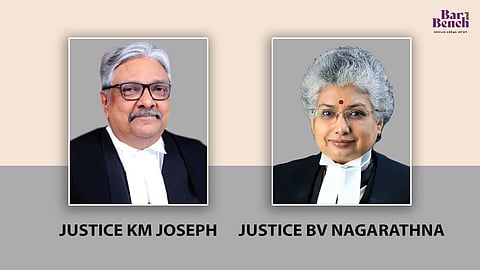
- News
- Columns
- Interviews
- Law Firms
- Apprentice Lawyer
- Legal Jobs
- हिंदी
- ಕನ್ನಡ

The Supreme Court on Monday lamented the delay in registration of a criminal complaint by the Uttar Pradesh Police in connection with an alleged hate crime that took place at Noida in 2021. (Kazeem Ajmad Sherwani v. State of Uttar Pradesh)